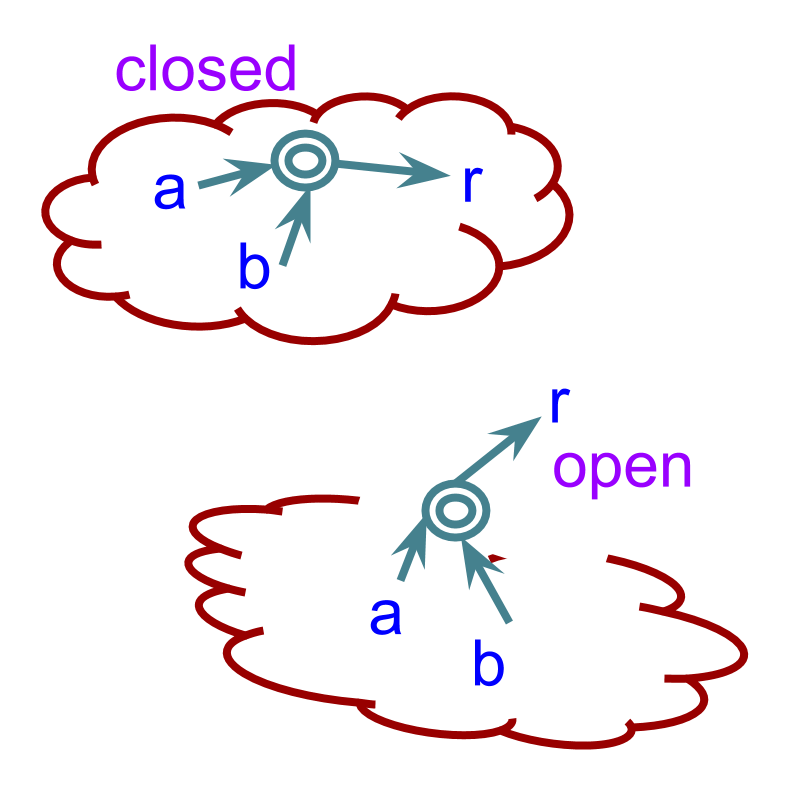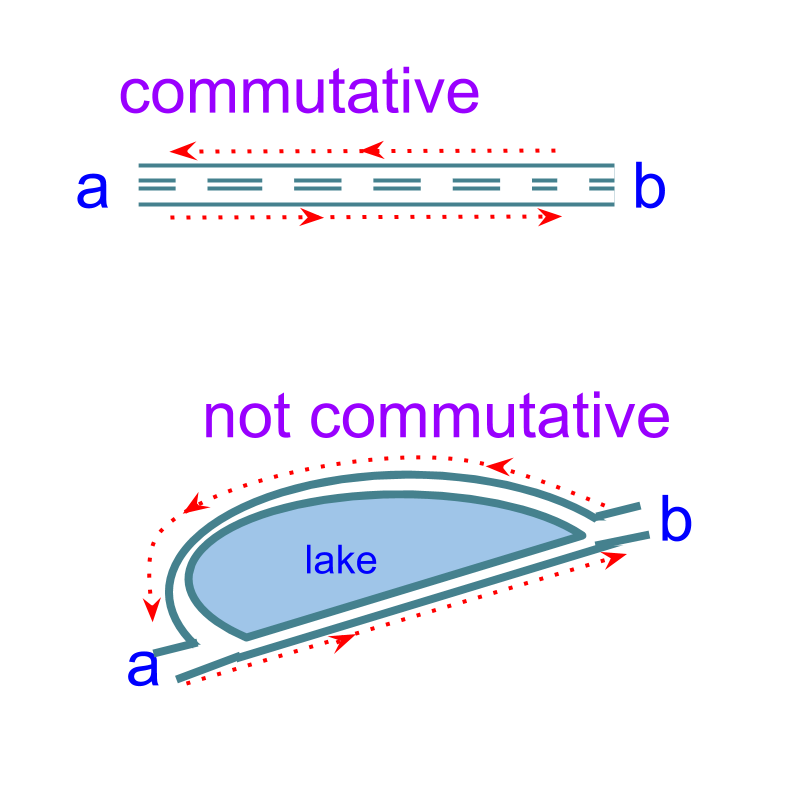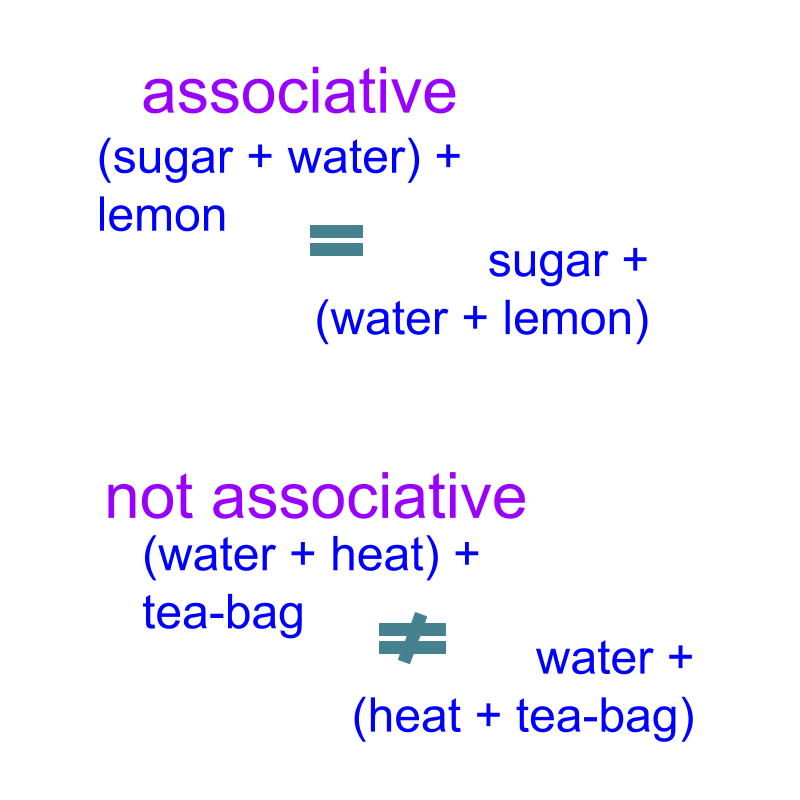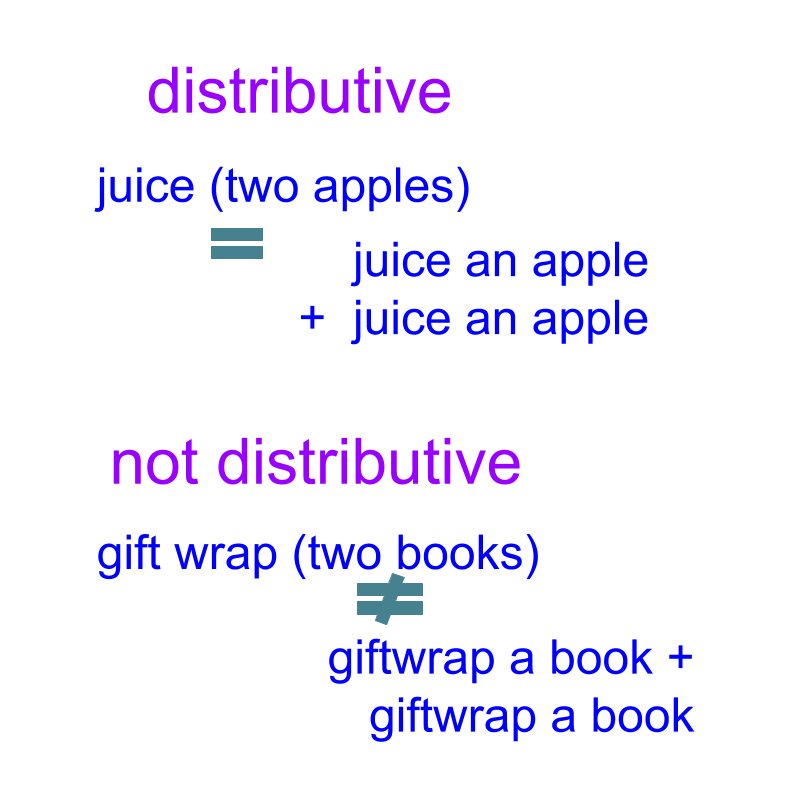
what you'll learn...
Overview
» Complex Multiplication is closed.
→
» Complex Multiplication is commutative.
→
» Complex Multiplication is associative.
→
» Complex Multiplicative identity is .
→
» Complex Multiplicative inverse of is .
→
» Complex Multiplication is distributive over complex addition.
→
» Modulus of product is product of modulus.
→
» argument of product is sum of arguments of multiplicand and multiplier.
→
closure law

The word 'closure' means, closed and not open
Given complex numbers and , ,
,
It is noted that and are real numbers (by closure law of real-number addition, subtraction, and multiplication) and so, is a complex number.
Consider
The complex number division is equivalently multiplication by the conjugate. So, is a complex number
summary
Closure property of Multiplication and Division: For any given complex numbers , .
Product or quotient of two complex number is another complex number - closed
Commutative Law

The word 'commute' means 'to go to and fro between two places on a regular basis'.
Consider the multiplication and division of complex numbers. given as , where .
It is noted that as the real and imaginary parts of the two complex numbers are equal by commutative law of real number multiplication.
will have the same
Commutative property is not defined for inverse operations. Division is the inverse of multiplication.
Division is the inverse of multiplication.
The commutative property has to be used in the following way.
(commutative property of multiplication)
Given for two complex numbers ; . Find the value of .
The answer is ''
summary
Commutative Property of Complex Multiplication: for any complex number
Complex numbers can be swapped in complex multiplication - commutative.
associative law

The word 'Associate' means 'to connect with; to join'.
When three complex numbers are multiplies,
• Person A associates the middle complex number with first complex number and, to the result of that, he multiplies the third complex number
• Person B associates the middle complex number with third complex number and to that she multiplies the first complex number .
We can work out this in terms of real and imaginary parts of each number. It will prove that
Associative property is not applicable to division. Instead, Division is handled as inverse of multiplication and assiciative property of multiplication is applicable. i.e. For , it will be handled , then associative property of multiplication applies.
Given , what will be the result of ?
The answer is ''.
summary
Associative property of Complex Multiplication: For Any complex number ,
Order of multiplication can be changed - associative
multiplicative identity
The word "identical" means "exactly alike; same in every detail"
Consider the complex number . The result of multiplying that with a complex number is ''.
The product is identical to the number being multiplied.
Multiplicative identity is 'an element, when multiplied, will result in product identical to the multiplicand'.
Consider What will be the product ?
The answer is ''
summary
Multiplicative Identity in Complex Numbers: For any complex number , there exists such that
is the multiplicative identity.
multiplicative inverse
The word 'inverse' means 'opposite; converse'.
Consider two complex numbers and
is multiplicative identity.
or (a-ib)/(a^2+b^2) is the multiplicative inverse.
What is the multiplicative inverse of ?
The answer is ''
summary
Multiplicative Inverse: For any complex number , there exists such that
For any complex number there exists : multiplicative inverse
distributive property

The word 'distribute' means 'to share; to spread'
Consider three complex numbers , and the following
add first and multiply that by . That is,
multiply and and added the results. That is
These two results will be the same".
The complex numbers addition and multiplication is considered to be operations on numerical expressions of real numbers.
proof:
Given and what is ?
The answer is ''
summary
Distributive Property of Complex Numbers: For any given complex numbers
Product with sum of complex numbers is sum of, products with the complex numbers - distributive.
modulus in multiplication
Given and . The modulus of product is ''.
Given and , the modulus of product
Given and what is the modulus of quotient ?
The answer is ''.
summary
Modulus of Product: For complex numbers
Modulus of product is product of modulus.
argument in multiplication
Given and , the argument of product is 'text(arg)z_1 + text(arg)z_2'.
Given and , what is the argument of quotient ?
The answer is ''.
summary
Argument of Product: For complex numbers
argument of product is sum of arguments.
Outline
The outline of material to learn "complex numbers" is as follows.
Note : Click here for detailed overview of Complex-Numbers
→ Complex Numbers in Number System
→ Representation of Complex Number (incomplete)
→ Euler's Formula
→ Generic Form of Complex Numbers
→ Argand Plane & Polar form
→ Complex Number Arithmetic Applications
→ Understanding Complex Artithmetics
→ Addition & Subtraction
→ Multiplication, Conjugate, & Division
→ Exponents & Roots
→ Properties of Addition
→ Properties of Multiplication
→ Properties of Conjugate
→ Algebraic Identities